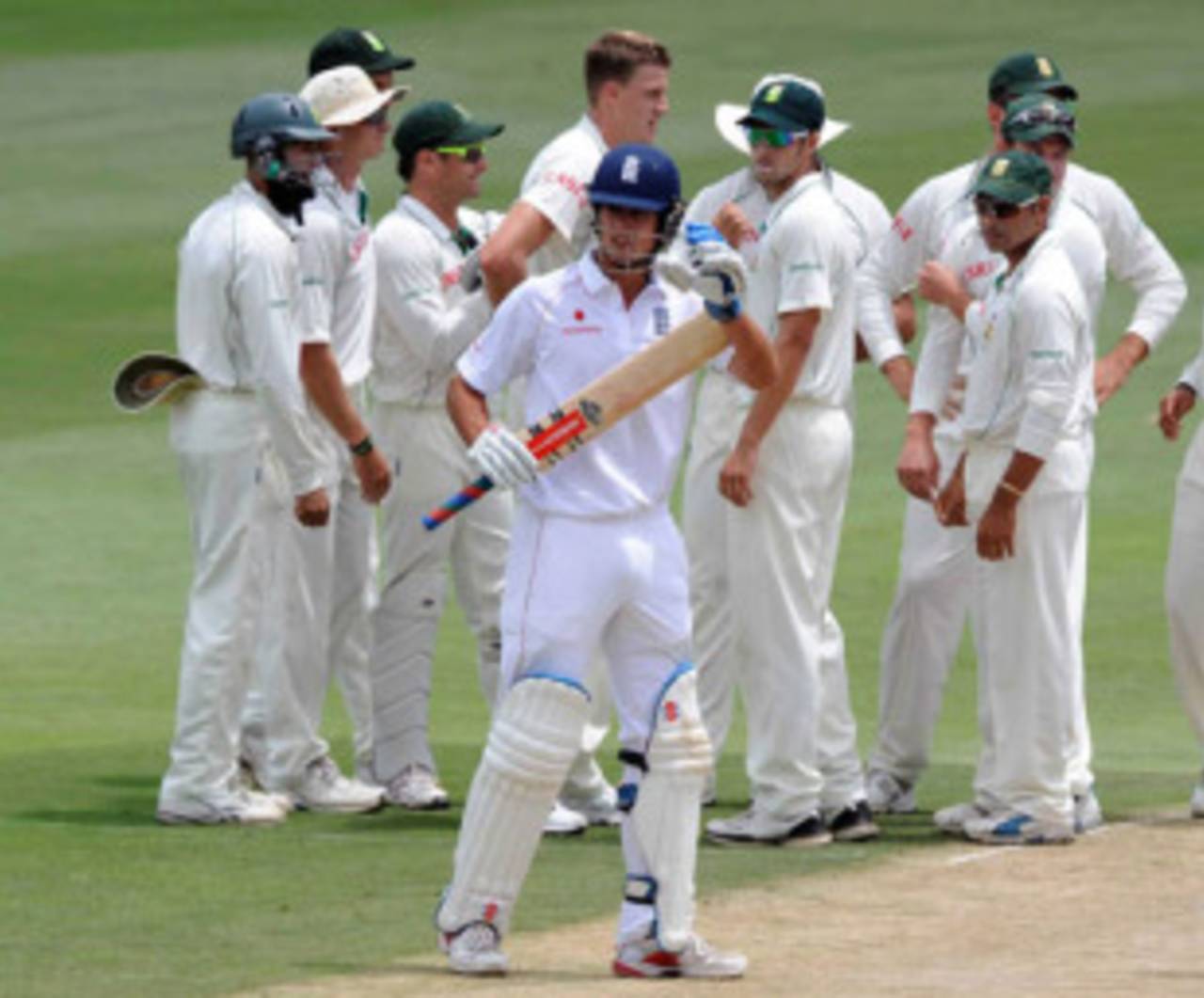Cook, Kandamby welcome DRS implementation
England's newly-appointed ODI captain, Alastair Cook, has welcomed ICC's decision to make a modified version of the Decision Review System (DRS) mandatory in all Tests and ODIs
ESPNcricinfo staff
27-Jun-2011

Alastair Cook: "What we need is players getting the right decisions, whether they are in or out, and that is the end of the matter" • Getty Images
England's new one-day captain, Alastair Cook, has welcomed the ICC's decision to make a modified version of the Decision Review System (DRS) mandatory in all Tests and ODIs.
"I believe DRS helps get more right decisions, which is the most important thing," Cook said ahead of the first ODI against Sri Lanka at The Oval. "What we need is players getting the right decisions, whether they are in or out, and that is the end of the matter. I think technology to get those decisions right is the best way forward and we need as much available as we can to get the right decisions."
Thilina Kandamby, who led Sri Lanka to victory in the one-off Twenty20 and will remain in charge if Tillakaratne Dilshan doesn't recover in time for the first one-dayer, shared Cook's opinion on the issue. "Personally I feel technology has to come in," Kandamby said. "I feel cricketers and umpires might make mistakes. We are all human, so it has to come in to a certain extent."
Former New Zealand captain Stephen Fleming also voiced his support for the system, but added that it would remain a "compromise" until all countries wholeheartedly backed it.
"It is a situation where we have to come," Fleming said in New Delhi. "We had to accept it one day. The use of technology has become a must in modern day cricket. The technology is there to get rid of bad decisions. But there are some aspects which is not acceptable to some of the boards. It is a compromise until all the countries are totally convinced about it."
The DRS has been a controversial issue at the international level, with the Indian board and players opposing its implementation on the grounds that the ball-tracking technology was not sufficiently reliable. The ICC's new ruling will do away with ball-tracking as one of the mandatory review tools, and will rely primarily on the use of infra-red cameras and audio-tracking devices.
This means that India will, for the first time since 2008, be agreeable to using the DRS in a bilateral series when they tour England in July. However the DRS used in that series will be without the aid of ball-tracking technology. For example, if the ball pitches outside leg stump and the batsman is given out lbw, the batsman can appeal against the verdict but the third umpire will not have the benefit of the ball-tracking technology to ascertain where the ball pitched. On the other hand, if a batsman is given out lbw and he thinks there is an inside-edge involved, the Hot Spot can resolve whether there was an edge or not.